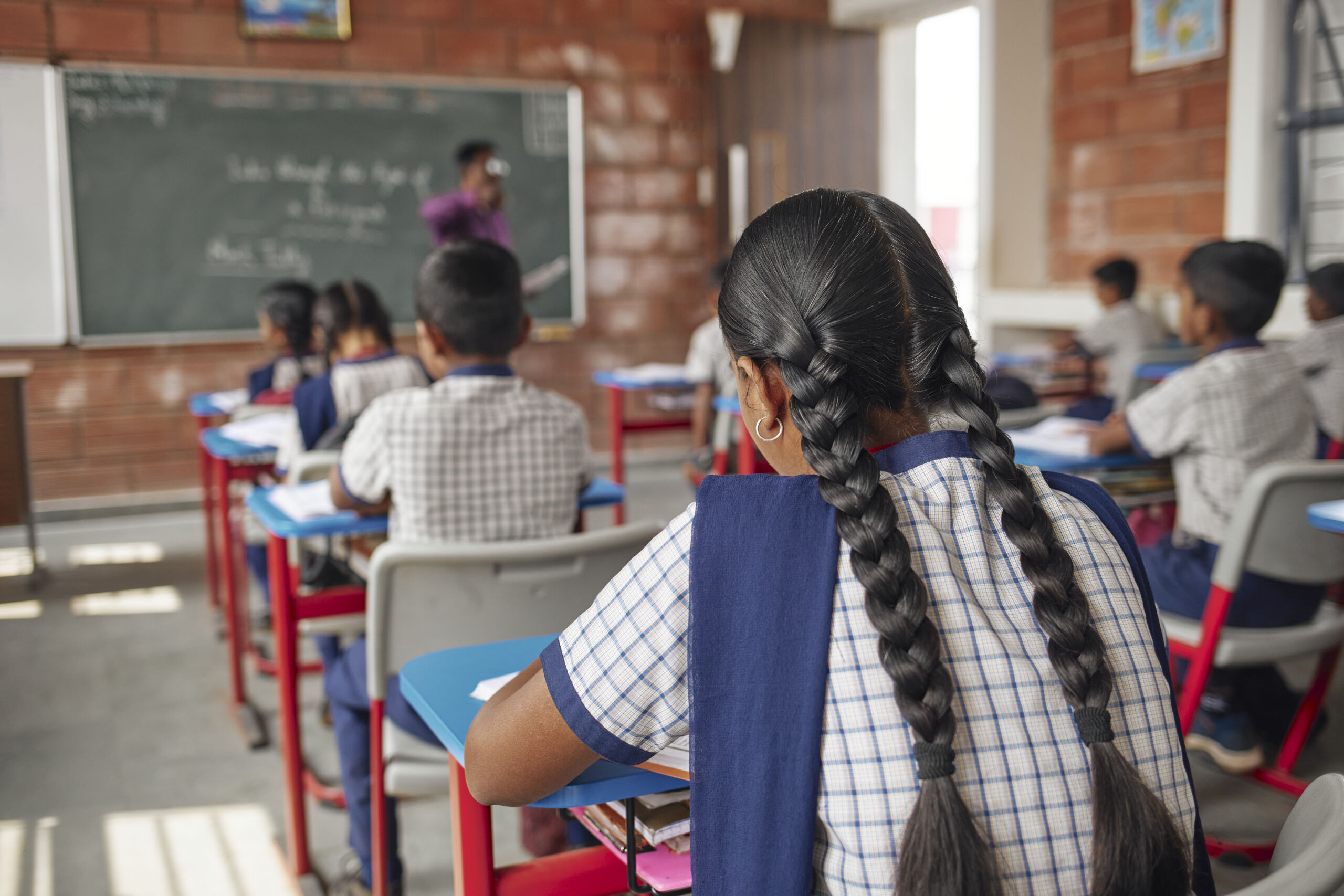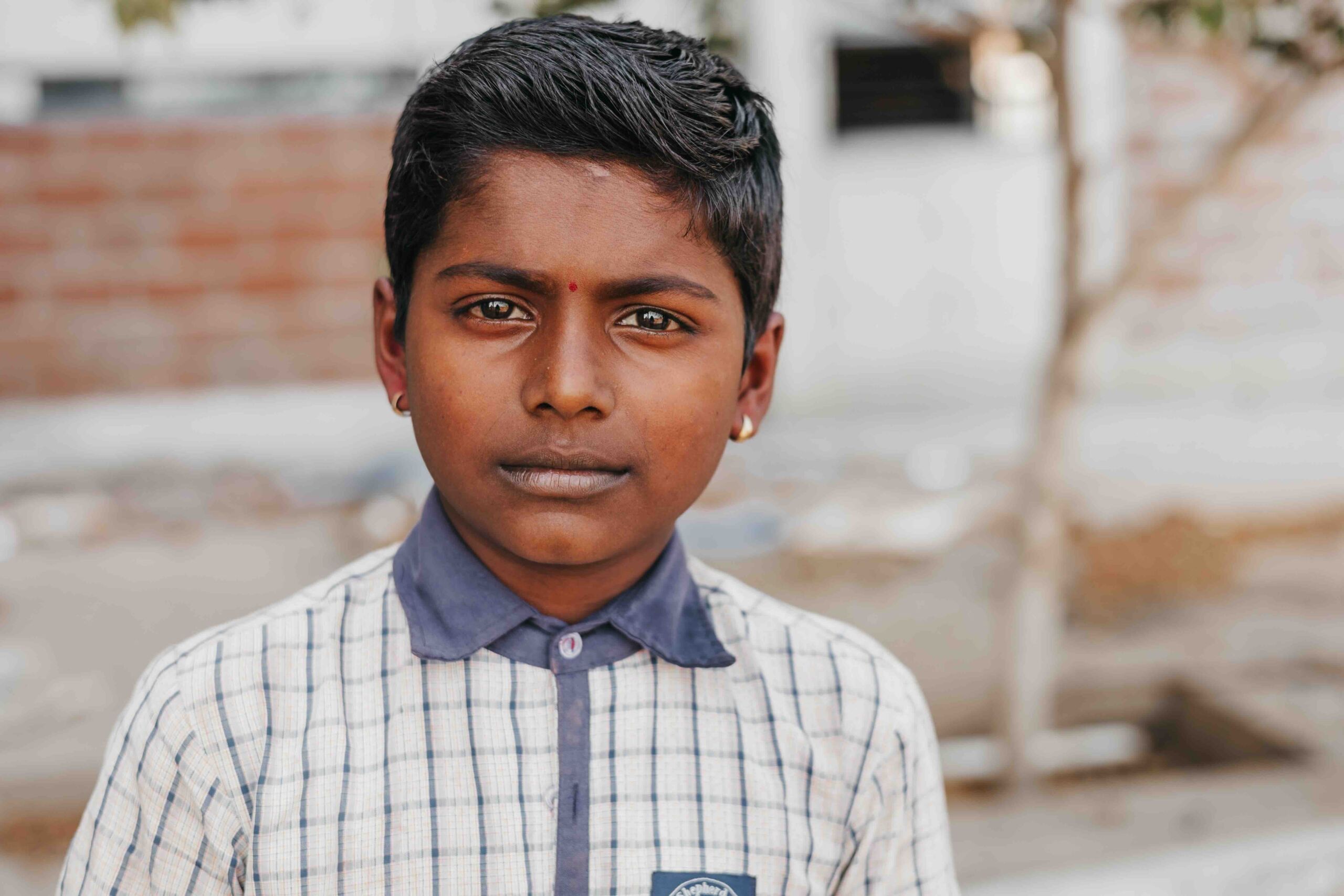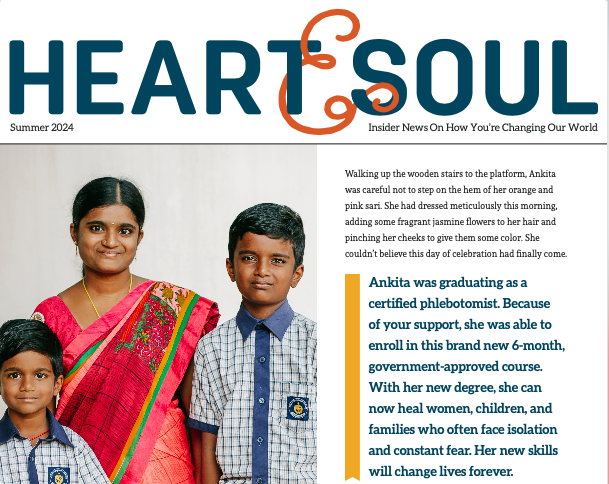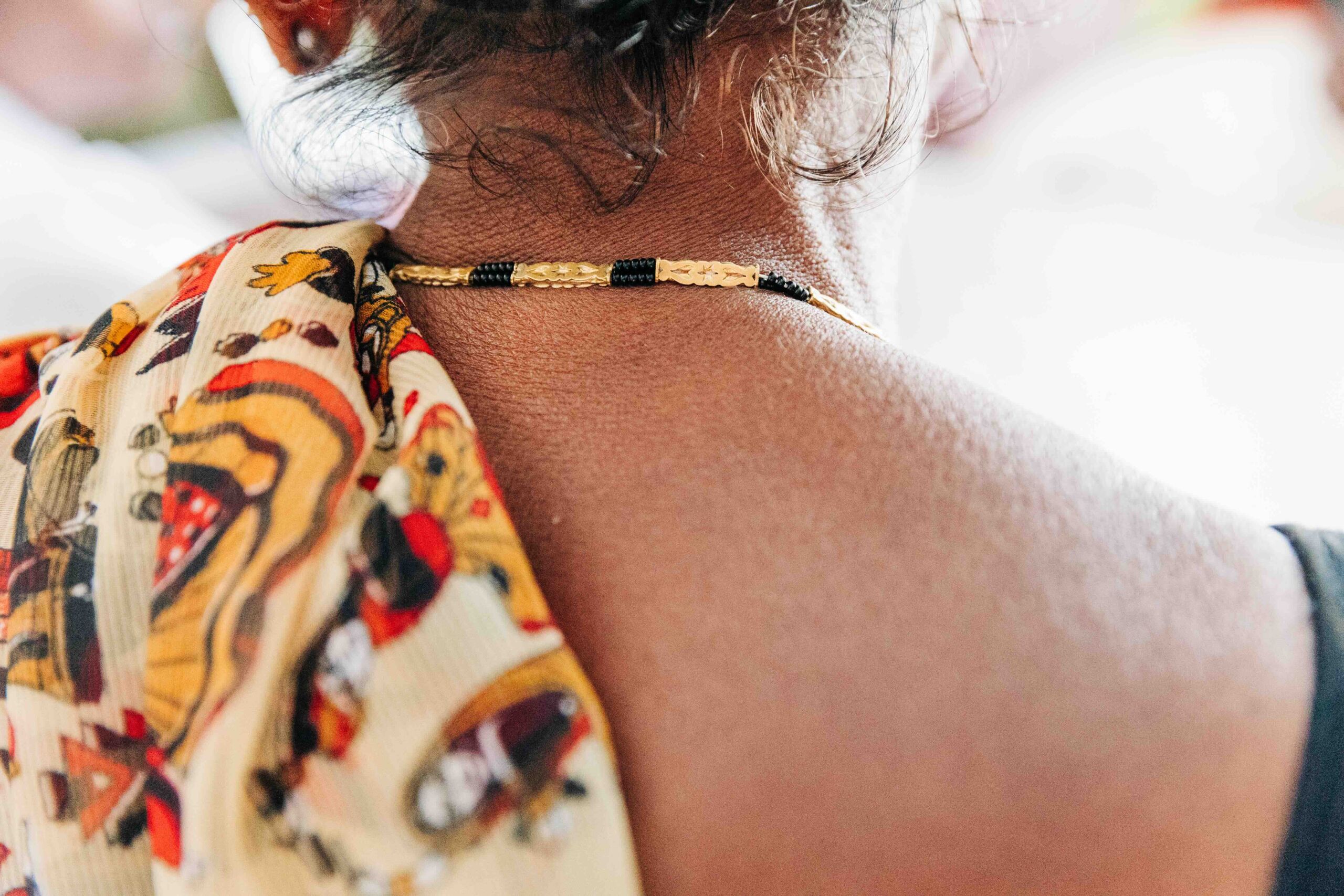
Child marriage is against the law in India, and the government works hard to prevent it. But sometimes, the need for food trumps the law.
Consider this:
- 1 in 3 of the world’s child brides live in India.
- 2% of young women in India were married before their 18th birthday.
- The majority of child brides give birth as adolescents.
- Most child brides come from rural areas, poor households, and have little to no education.¹
DFN is on the front lines of preventing this tragedy.
With more than 11,000 girls enrolled in schools in the poorest villages across India, we are on the front line of Get There First, before the traffickers, before a marriage ends a young girl’s life.
Here’s how:
Mili had attended our DFN school since she was four. Her family jumped at the opportunity for her to receive a private school education that would open doors of opportunity for her future. Both parents dropped out of school in 5th grade to support their families. They wanted more for her. She would learn English, play on a sports team, and compete in chess tournaments.
Mili was a good student. At 15, she loved her life. Her family had just enough to survive and to keep her in school. She had planned to attend college and pursue a business degree. The future was full of possibility and a guarantee that she would break the chains of generation poverty for her family.
And then the medical bills piled up.
Mili’s grandmother was very sick and needed constant care. As the debt grew, talk of Mili dropping out of school became a real possibility. Until…
Until a wealthy 45-year-old man from another village offered to marry Mili. She would be his second wife. Let that sink in. He would pay off the debt and pay for the wedding. The offer was too good to refuse, and Mili’s father quickly agreed to the arrangement. She would be married in 10 days.
Not. On. Our. Watch.
Mili fought back. At school she had been taught her rights as a child and a young woman. She knew where to go if she needed help and wasted no time telling her teachers. They swiftly acted, calling on the police and DFN community workers to intervene.
First, community workers made sure Mili was in a safe place. Stopping a marriage already in motion could result in a violent backlash by the suitor.
Then, they worked with her family. They helped with food, rent, and even the medical bills, bringing financial independence and stability to the family. That’s all they needed. A little assistance. A little care. A little support. To redeem their daughter’s life.
Today, Mili is a graduate of her local DFN school and enrolled in college. Her future looks just like when she was four – bright and full of opportunity.
But what if Mili hadn’t been in school? What if she wasn’t surrounded by people who cared about her and were committed to her and her family? Imagine Mili’s life as the second wife of a 45-year-old man. Just for a moment. Imagine.
This is why we must Get There First for the girls of India, for their dignity, their honor, and their future.
January 28, 2025 is DFN’s 2nd Annual Day of Giving. Just one day. Just $22. One more girl grows up safe and sound, filled with opportunity and hope. And you can Get There First for just $22.
Our stories are always real. We change names and photos to protect the identity and uphold the dignity of those we serve.






Get Social